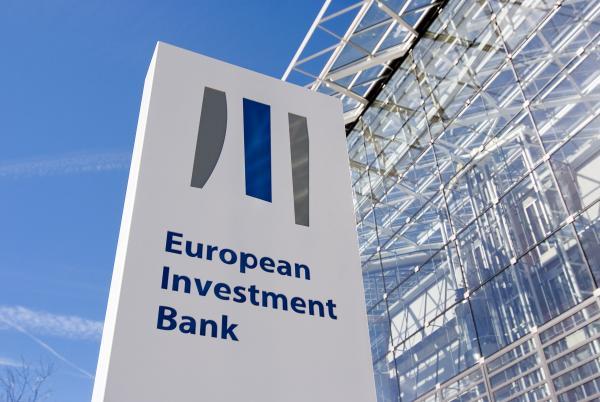Facebook has platformed more than 100 paid advertisements promoting illegal settlements and far-right settler activity in the occupied West Bank, an Al Jazeera investigation has found, raising concerns that the social media giant is profiting from content that may violate international law.
Among the advertisements identified were also calls for the demolition of Palestinian homes, schools, and playgrounds, as well as fundraising appeals for Israeli military units operating in Gaza.
Facebook’s parent company Meta told Al Jazeera that any advertisements that ran on its platforms were reviewed by the company. While it admitted that some of the advertisements had since been removed for “violating our social issues, elections, and politics policies”, it did not specify whether the promotion of illegal settlements built on stolen Palestinian land breached those standards.
Legal experts told Al Jazeera that Meta could be complicit in violations of international law by approving, accepting payment, and publishing these advertisements. Brian Leishman, an MP in the United Kingdom parliament, described the findings as “extremely concerning”.
Illegal settlements advertised on Facebook
At least 52 paid advertisements from Israeli real estate companies were found promoting property sales in settlements across the occupied West Bank, targeting buyers from across Israel as well as some users in the UK and the United States. These advertisements were first published in March 2024, and many remain active on Facebook.
“We have robust processes and teams to review ads, and our ad review system is designed to review ads before they go live,” Meta told Al Jazeera. “This system relies primarily on automated technology to apply our Advertising Standards to the millions of ads that run across our apps, while relying on our teams to build and train these systems, and in some cases, to manually review ads.”
Among the advertisements identified by Al Jazeera were at least four promoting property sales in the illegal Israeli settlement of Ariel, 20km (12 miles) east of the Green Line in the occupied West Bank. The listings, written in Hebrew and targeting Israeli Facebook users, were paid for by a Facebook page called “Ramat Aderet”, which describes itself as offering “penthouses for a perfect quality of life”.
According to the website, the Ramat Aderet (Hillside Crown) project is “two neighbourhoods – north and south – with a total of 27 … buildings of between 4 to 8 floors. The apartments provide a complete urban living experience in a perfect neighbourhood.” The company has a valuation of $300m, according to PitchBook, a research firm and financial data provider.
Ramat Aderet did not respond to Al Jazeera’s request for comment.
The real estate company selling apartments and houses in Ariel is Ram Aderet, which has received financing from the First International Bank of Israel.
The Boycott, Divestment, and Sanctions (BDS) movement has long called for a boycott of the bank over its role in financing illegal settlements. Following pressure, in January 2014, the Dutch pension fund PGGM withdrew investments from the bank, while insurance giant AXA divested in 2022.
Another 48 advertisements were posted by Gabai Real Estate, advertising homes in the occupied West Bank settlement of Ma’ale Adumim and the Efrat settlement.
These homes are part of an expansion approved in March 2024 by Israel’s “Higher Planning Committee”, which is overseen by far-right Finance Minister Bezalel Smotrich, who, since 2023, no longer needs political or military approvals for expansion plans.
Yaniv Gabbay, the co-owner of Gabai Real Estate, told Al Jazeera: “Unfortunately, we were only able to post 48 ads because our budget is limited, and we advertise on many different platforms. But as we sell more homes to Jews returning home to Judea, our advertising budget will increase, and we can post more.”
Some Israelis refer to the occupied West Bank as Judea and Samaria, and the far-right government has made a push towards annexing the Palestinian territory.
The advertisements attempt to portray living in the settlements as idyllic. One lists an eight-bedroom mansion with a “huge garden, large succah area (seats 50+), above-ground pool, Jacuzzi, sauna, cold plunge, and breathtaking desert mountain views… A dream home just 20 minutes from Jerusalem! Don’t miss out!”
Carolina Are, a platform governance researcher at the Centre for Digital Citizens at Northumbria University, told Al Jazeera that “the real estate ads have been expertly framed as standard property listings, allowing them to elude moderation”.
“Moderators may not be aware of the nuances of international law either,” she added.
Under international law, all Israeli settlements in the West Bank are illegal. The transfer of an occupying power’s civilian population into occupied territory is considered a war crime under the Rome Statute of the International Criminal Court.
Professor Aoife O’Donoghue, international law expert from Queen’s University Belfast, said: “On the West Bank, property can be privately bought and sold. However, whether they have the legal title to sell that land at all would be highly questionable.
“If the Israeli government is facilitating it, and they are settlements, then they would be in violation of the Third Geneva Convention. Here, the Israeli government has a duty to prevent illegal settlements.”

Settler groups pushing for demolitions
Al Jazeera also identified 50 advertisements posted by Regavim, a far-right settler group founded by Smotrich in 2006, that has called for the destruction of Palestinian homes, schools, and a children’s water park. The group receives funding from the Israeli government via the West Bank settlement councils, and also Amana, another pro-settlement organisation sanctioned by the UK and US governments.
One advertisement celebrated the demolition of a Palestinian school, boasting: “Following our petition, Civil Administration forces tore down an illegal Palestinian school built in the Herodian Nature Reserve… This school is only one out of more than 100 illegal school buildings.”
Another advertisement called for a Palestinian water park to be demolished, claiming: “Palestinians are enjoying themselves at our expense.”
Regavim defended the campaign against the school, saying it was “built for the sole purpose of creating confrontation”.
“[It] was deemed by the [Israeli] courts to pose a very serious and imminent danger to the safety and wellbeing of the Palestinian children who were being bussed in to fill the makeshift structure,” Naomi Linder Kahn of Regavim said.
The European Union has previously condemned the demolition of schools in the West Bank, and Human Rights Watch has described the practice as “discriminatory and violates children’s right to education”.
In October last year, nearly 90 US legislators urged then-President Joe Biden to impose sanctions on Regavim.
Regavim denies being a far-right or settler group, instead claiming to be a “mainstream, professional contributor to public discourse and is a frequent participant in national policy discussion and debate”.
But Leishman, the British MP, said: “Revelations that Israeli far-right pro-settler groups as well as businesses – and allegedly even active Israeli soldiers – may be using social media to promote what could be seen as illegal under international law are extremely concerning.”
Facebook fundraisers for Israeli soldiers in Gaza
Beyond settlement expansion, Meta has also platformed fundraising advertisements for Israeli military units operating in Gaza, even after a ceasefire was declared.
Legal experts say allowing such advertisements may violate international humanitarian law by promoting military operations in occupied territory.
Nine advertisements, paid for by Israeli singer Mayer Malik, sought donations for sniper teams, drone units, and special forces battalions deployed in Gaza. One advertisement, still active on Facebook, reads: “We urgently need shooting tripods to complete our mission in Jabalia.”

Other advertisements requested funding for drones for the Yasar Battalion and an elite Israeli army unit in Rafah, as well as night-vision goggles for the Golani Brigade.
Malik did not respond to two requests for comment from Al Jazeera.
According to Meta’s advertising guidelines, “Ads must not promote the sale or use of weapons, ammunition or explosives. This includes ads for weapon modification accessories.”
Professor Neve Gordon of Queen Mary University, UK, said: “Facebook is making money from criminal activity.
“By allowing third parties to post such ads, Facebook becomes complicit in their criminal activity, since the ads themselves play a role in whitewashing, normalising and legitimising acts that, according to international humanitarian law and the Rome Statute, are egregious crimes.”
Leishman added: “Social media giants should be a lot more careful about what they allow to appear on their platforms, rather than profiteering from organisations with a dangerous and divisive agenda.
“It is time for them to start taking responsibility so that they are not complicit in systematic violations of international law.
“Everyone is under an obligation not to recognise, aid or assist in maintaining the illegal occupation of Palestinian territory – social media giants are not exempt or above the law.”


